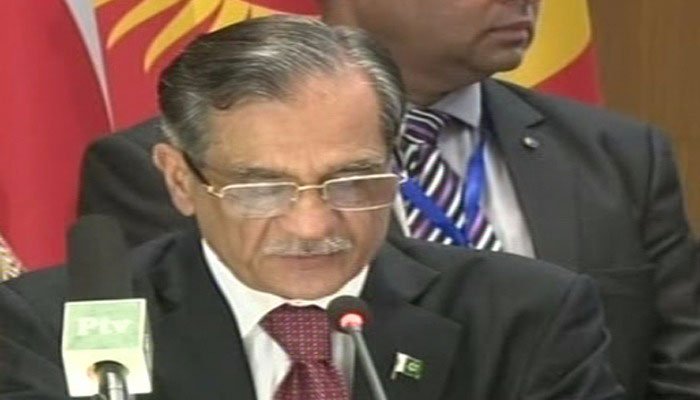The Chief Justice of the Pakistan Supreme Court, Iftikhar Muhammad Chaudhry, has expressed concern that the democratic government, which replaced military rule, did not undo or nullify the acts and actions of the military ruler.
“The democratic government did not validate or condone the acts and actions taken by the military ruler, but at the same time, such acts/actions were not undone or nullified,” Mr. Chaudhry said, adding that it was the judiciary that brought an end to the constitutional deviation and established the rule of law and constitutionalism.
He was delivering the keynote address at the inaugural of the 17{+t}{+h} Commonwealth Law Conference that began here on Sunday. The event is being attended by Chief Justices, judges, representatives of the Commonwealth Lawyers Association, and legal luminaries from 54 countries. The four-day conference will deliberate on various issues in four streams — constitutionalism, human rights and rule of law, corporate and commercial law, legal and judicial profession — and contemporary legal topics.
Mr. Chaudhry described how the judiciary in Pakistan had passed through different phases in the face of unconstitutional measures and ensured its independence in all the circumstances. He recalled the November 3, 2007 promulgation of emergency, which was declared “illegal and unconstitutional” by the Supreme Court in its landmark order the same day. “The military dictator continued ruling despite resistance from the judiciary, legal fraternity, students, media and other segments. The judiciary, sacked by adopting unconstitutional devices, was ultimately restored,” he said.
TRANSPARENCY NEEDED
However, Mr. Chaudhry, who stressed the need to ensure transparency in the judiciary for achieving faster economic growth, deplored the fallacy of the international trade regime. “While the World Bank, the IMF and the WTO strictly prohibit subsidies in developing countries, especially in agriculture and farming, richer and industrialised countries heavily protect their agriculture sector,” he said.
‘MINIMUM CORE APPROACH’
Chief Justice of India S.H. Kapadia stressed the need to adopt a minimum core approach to help the needy. Asserting that economy, technology and other fields could not be segregated from law, he suggested that the government consider the minimum core approach, with a focus on people below the poverty line and those marginally above, to provide benefits. “With its limited resources, the government cannot provide services on the basis of equality, so deprivation should be taken as the basis for reaching out benefits. It is just a shift in the approach that will bring a new jurisprudence that can enable enforceability,” he said. Justice Kapadia urged Prime Minister Manmohan Singh to consider constituting the Indian Regulatory Services on the lines of the IAS and the IPS, roping in experts in regulatory laws. “What we need is expertise and there are people in the country,” he said.
link: http://www.thehindu.com/news/national/article1162725.ece










